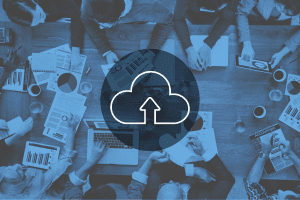Cloud accounting is constantly developing and pushing the accounting business services into new possibilities, revolutionising the way businesses manage their money. But what is it? And how can your business make the most of it? Here’s everything you need to know:
What is cloud accounting?
Cloud accounting is the use of specialised software to store a business’s books online, making them accessible at any time. The books are encrypted and stored securely in the software provider’s data centres. Most cloud accounting solutions can be linked to a business’s bank account, which means that any transaction made using that account is automatically sent to the accounting provider and the books are updated in real time.
What is a cloud accountant?
A cloud accountant is an accountant that makes use of this software to manage finances remotely. For example, J Sweeney Accountants have been certified by popular accounting software provider Xero as Gold Partner accountants. This means our staff are experienced users of Xero and can make the most of its features in order to better serve our clients.
What are some cloud accounting benefits?
Cloud accounting is useful for any business, streamlining processes and centralising all financial information. However, there are some particular advantages when cloud accounting for small business.
Software
The software is inherently scalable, so it can grow with your business and integrate with other systems. This type of bookkeeping also saves time on administrative jobs, allowing small businesses to focus on their primary operations.
Cost-effective
Additionally, it can be more cost-effective than traditional accounting methods, as it eliminates the need for costly infrastructure and processes and can be scaled up or down as needed.
Accessibility
Another benefit of cloud accounting is increased accessibility. It means a business’s books can be accessed from anywhere, giving employees freedom on where they work, and management an easy overview of the company’s finances at all times, which can be invaluable when making big decisions.
In conclusion, cloud accounting is rapidly becoming the preferred method of accounting for businesses of all sizes. Its many benefits, including increased accessibility, real-time data, and reduced costs, make it an attractive option for businesses looking to streamline their financial operations.
If you’re interested in transitioning your business to cloud accounting or have any questions about how it can benefit your business, contact us at J Sweeney Accountants or give us a call on 01604 950034 .
Our team of experienced professionals can provide the guidance and support you need to make the transition to cloud accounting a success.




